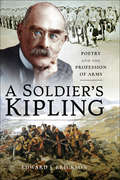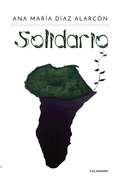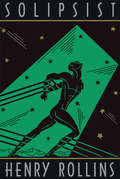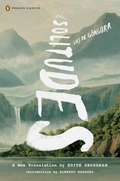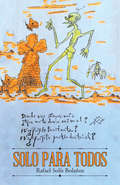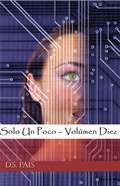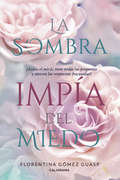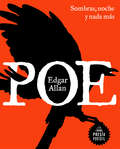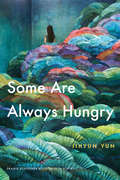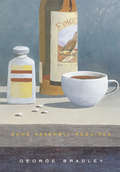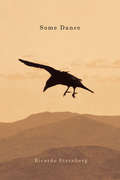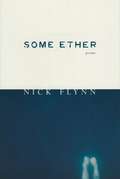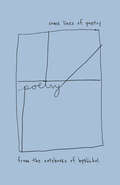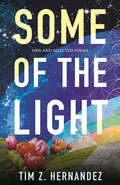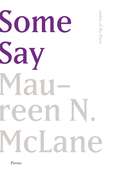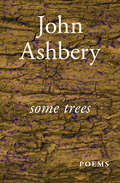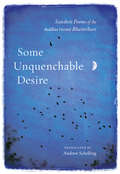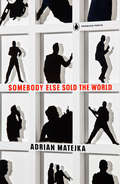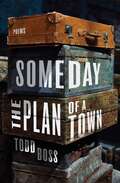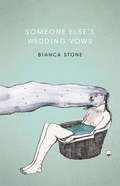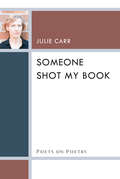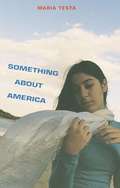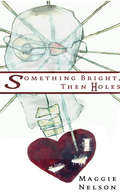- Table View
- List View
A Soldier's Kipling: Poetry and the Profession of Arms
by Edward J. EricksonRudyard Kipling was one of the most versatile writers of the Victorian age a journalist, storyteller, historian and poet. One of the major subjects of his poetry was the British army and the way it waged its campaigns during Queen Victorias little wars, and it is this aspect of his writing that Edward Erickson explores in this absorbing and perceptive study.Kiplings military poems offer insights into the profession of arms and how soldiers were trained and fought in distant expeditionary campaigns they bring to life the world of the Victorian soldier in the most evocative way. Although not a soldier himself, Kipling wrote about timeless themes of military and wartime service, the experience of combat, unit cohesion and individual courage.A Soldiers Kipling is an original contribution to the understanding of Kiplings work and his times, and it should lead to a fresh appreciation of a facet of his writing that has not been focused on so closely before.
Solidario
by Ana María Díaz AlarcónLa Poesía, amiga de la soledad y mía, confidente de mis días. Leemos sonoridades, evocaciones, deseos. <P><P>Nos asomamos a estos poemas, como una ventana, desde donde ojear los amaneceres, los colores, el mar, el amor, el deseo, la vida bulliciosa y muy preciada, la solidaridad, la Paz, la educación y la cultura; los niños con sus asombrados ojos. Recogemos nuestros sentimientos desde el paisaje mediterráneo. <P><P>Ciudad donde el fresquísimo aire de verano es un gran abanico por la noche. El tiempo, siempre escaso en una vida. En sus páginas, las palabras son escasas para nombrar; se asemejan a una música y una vitalidad; descripciones en unos momentos gratificantes. Hay veces donde las ilustraciones, hacen la lectura más llevadera, o simplemente menos monótona. <P><P>Vaya este libro para mi incansable hija, Ana; mis amigos desde la infancia, hasta los años muy venideros, mis conocidos, en los distintos espacios donde transcurre mi vida.
Solipsist
by Henry RollinsI saw the word Solipsist while reading the dictionary in 1993. I was livingin NYC at the time and the word defined how the city made me feel. I workedon this book in several cities all over the world until 1996. <P><P>The writing isobsessive and claustrophobic. To be solipsistic is to totally realize the egoand the nightmare of utter self-possession. I went for it and it swallowed me whole. -- Henry Rollins
The Solitudes
by Edith Grossman Alberto Manguel Luis De GongoraAn epic masterpiece of world literature, in a magnificent new translation by one of the most acclaimed translators of our time. A towering figure of the Renaissance, Luis de Góngora pioneered poetic forms so radically different from the dominant aesthetic of his time that he was derided as "the Prince of Darkness." The Solitudes, his magnum opus, is an intoxicatingly lush novel-in-verse that follows the wanderings of a shipwrecked man who has been spurned by his lover. Wrenched from civilization and its attendant madness, the desolate hero is transported into a natural world that is at once menacing and sublime. In this stunning edition Edith Grossman captures the breathtaking beauty of a work that represents one of the high points of poetic achievement in any language.
Solo para todos
by Rafael Solís Bolaños"...en sus trincheras,incapaces de verse como Humanidad..." <P><P>Dentro de nuestra vulnerabilidad soy; eres, el centro del universo por cuanto conciencia de sí; soy referente del ser y estar en percepción-interpretación sostenida del entorno y de mi mismo, atrapado en mi totalidad brotada de factores innumerables; turbulentos y frecuentemente ocultos y sin más alternativa existencial que la continua; obligada toma de decisiones y sus probabilísticas consecuencias. <P><P>La gran porción de mi poesía la he nacido sobre el camino de vida; a modo de estrangulamiento vital y caótico: en permanente deslumbramiento creación-destrucción-recreación, y lúcido de mi cuenta regresiva que no admite indiferencias. Entre euforias, apatías, palizas y en un contexto de grandes urbes y selvas barrocas; inmensidades y mínimos detalles, han germinado con esfuerzo y esperanza mis criaturas, que sabedoras de lo inefable, apelan a los recónditos del alma de un lector que las recomponga y les dé destino.
Solo Un Poco – Volúmen Diez
by D. S. PaisNo cuento con esa información, al parecer, en este caso, todo lo que tengo es una sección de un libro más grande o una sección de lo que probablemente será un libro más grande, por lo pronto espero se revisada la presente traducción, ya que, lo correspondiente a mi traducción se ha llevado a cabo de forma puntual y completa. Al parecer la entrega del presente trabajo fue calificada como retrasada, a lo cual, hago mención que creo se debió a que el autor tardó demasiado en notificarme si las primeras 10 páginas serían aceptadas o no, por lo que estaré atento a lo que surja.
La sombra impía del miedo
by Florentina Gómez Guasp¿Acaso el miedo tiene todas las preguntas y atesora las respuestas fracasadas? Hay un ritmo oculto en el miedo que nos aventaja y no alcanzamos a leer los compases de su música, nos atrapan sin comprenderlos; la fuerza de sus notas desdibuja las líneas que nos definen y nos confunden. El miedo tiene, también, su propio poder y lo arquea cuando lo enfrentamos con las armas que nos da el conocimiento. Este libro de poemas es una reflexión sobre las preguntas y lasrespuestas que plantean nuestros miedos.
Sombras, noche y nada más
by EDGARD ALLAN POELlegan a Poesía Portátil los versos de Edgar Allan Poe, el padre de poemas tan conocidos como «El cuervo». Una selección que introduce al lector en el imaginario poético de Edgar Allan Poe, un autor decisivo en el desarrollo de la literatura moderna. Estos versos ponen de manifiesto la gran preocupación de Poe por la belleza en sus creaciones. Los suyos son poemas que resuenan con una musicalidad y un uso del lenguaje magistrales, en los que las formas y los motivos que el autor bostoniano hizo suyos encuentran su eco en muchos de los grandes autores de la literatura moderna como Charles Baudelaire, Fiodor Dostoievski, William Faulkner, Franz Kafka o Jorge Luis Borges. Cierta medianoche aciaga, con la mente fatigada, revisaba unos libracos de saber inmemorial y asentía, adormecido, cuando rechinó un postigo, como si alguien, con sigilo, golpeara mi portal. «Es –me dije– un visitante que golpea mi portal; solo eso y nada más.»
Some Are Always Hungry (Prairie Schooner Book Prize in Poetry)
by Jihyun YunWinner of the Prairie Schooner Book Prize in Poetry, Some Are Always Hungry chronicles a family&’s wartime survival, immigration, and heirloom trauma through the lens of food, or the lack thereof. Through the vehicle of recipe, butchery, and dinner table poems, the collection negotiates the myriad ways diasporic communities comfort and name themselves in other nations, as well as the ways cuisine is inextricably linked to occupation, transmission, and survival. Dwelling on the personal as much as the historical, Some Are Always Hungry traces the lineage of the speaker&’s place in history and diaspora through mythmaking and cooking, which is to say, conjuring.
Some Assembly Required: Poems
by George BradleyGeorge Bradley, whose previous work has drawn praise from James Merrill and Harold Bloom, here meditates on contemporary culture, on the natural world and the world imagined, and on the life of the poet. Whether he is standing in line at the SuperSave, where tabloids beckon, or contemplating the change of seasons in a classic sonnet sequence, Bradley juxtaposes the sublime workings of the mind with the mundane static that surrounds it. What he finds in this conjunction is a surprising beauty, a uniquely contemporary formal music, and, often, a curative dose of humor. Even verse itself is not exempt from his clarifying view, as he proves in “How I Got in the Business,” a wild ride through several sorts of commerce, including the poetry trade. Throughout Some Assembly Required, Bradley savors both the riveting accident of everyday life and the long view afforded by art, in poetry that is taut, witty, and dynamic.
Some Dance
by Ricardo Sternberg"To be able to pry apart: / this is object, this is subject / even though (confusion begins) / he can be both. Difficult then / to stand at the mirror and reflect: / I am this. This is what I am." Some Dance is a meditation on stories, the intersection of stories, of things made up, of things imagined, and of things lived - perhaps. Tricks played by memory, scrambling events from life with fiction, are a constant. Ricardo Sternberg seeks a fixed point from which to understand the world, but finds no resolution save for another poem. Everything is in flux, unstable, and leads to unexpected places: a commune in the 1960s, a drunken doctor who deals in contraband, a palm reader, a classroom visited by Jesus, a dance in a darkened kitchen. A lively collection that turns towards the commonplace, classical, and strange, Some Dance masterfully balances serious thought, big ideas, and good humour through surprising, elegant, and colloquial expressions.
Some Ether: Poems
by Nick FlynnWinner of a "Discovery"/The Nation AwardWinner of the 1999 PEN/Joyce Osterweil Award for PoetrySome Ether is one of the more remarkable debut collections of poetry to appear in America in recent memory. As Mark Doty has noted, "these poems are more than testimony; in lyrics of ringing clarity and strange precision, Flynn conjures a will to survive, the buoyant motion toward love which is sometimes all that saves us. Some Ether resonates in the imagination long after the final poem; this is a startling, moving debut."
Some Lines of Poetry: From the Notebooks of bpNichol
by bp NicholCBC BOOKS "CANADIAN POETRY COLLECTIONS TO WATCH FOR IN FALL 2024"For bpNichol’s 80th birthday, a selection of 80 pieces from his 1980s notebooks, an astounding trove of never-before-seen work.One of Canada’s most beloved poets, bpNichol (1944–1988), left a huge legacy of poetry, prose, scripts, comics, and playful interrogation of language after his untimely passing in 1988. In celebration of what would have been Nichol’s eightieth birthday, Some Lines of Poetry gathers excerpts from Nichol’s journals across the 1980s to give a unique perspective on craft, process, and a writer’s life. Featuring works in progress, insight into Nichol’s thinking, previously unpublished prose and lyric, visual, and sound poems, Some Lines of Poetry documents Nichol’s “apprenticeship to language” and his playful daily exploration of the limits of writing. Lovingly edited by noted poet-scholars Derek Beaulieu and Gregory Betts, who provide an afterword contextualizing Nichol’s practice, Some Lines of Poetry is a map of hidden corners, a guidebook to poetic play, and a tribute to Nichol’s ongoing influence."No other writer of our time and place was so diverse, attempted so much, and never lost sight of his intent." – Michael Ondaatje
Some of the Light: New and Selected Poems (Raised Voices)
by Tim Z. Hernandez25 years of writing from one of our most gifted Latinx poets, featuring work from early explorations of machismo to new meditations on life as a single father, immigrant detention, and spiritual inquirySome of the Light gathers the first 25 years of Hernandez&’s award-winning poetry, offering 28 new poems and a glimpse at the trajectory of a rising contemplative American author.At its core, Some of the Light contains collected poems of love, told through the lens of a single father raising two children alone in the borderlands. They are at times intimate and confessional, ranging from personal relationships to spiritual inquiry, from human rights to the environment, while between the cracks of the poems are poetic contemplations, chronicling the passing days of the pandemic.This latest work by Hernandez reveals a writer whom former US poet laureate Juan Felipe Herrera calls &“a titan—unafraid to take to the road, get his hands dirty, to fully immerse himself in the world of his subjects.&”Some of the Light is a part of Beacon Press's Raised Voices poetry series, established in 2021 to raise historically excluded voices and perspectives, and to celebratepoetry&’s ability to access truths in ways no other form can.
Some Permanent Things
by James WilsonIn James Matthew Wilson's newest collection of poems he continues to show his command of major themes of many ranges of contemporary experience in a style that is unusually complex, but always exact, profound and deeply insightful. In this new book, his best poems, those concerning matters of the soul, place him among the finest poets writing today.
Some Say: Poems
by Maureen N. MclaneA dazzling collection of poems exploring the mental landscape of our momentMaureen N. McLane’s Some Say revolves around a dazzling “old sun.” Here are poems on sex and death; here are poems testing the “bankrupt idea / of nature.” Some Say offers an erotics of attention; a mind roaming, registering, and intermittently blocked; a mortal poet going “nowhere fast but where / we’re all going.” From smartphones to dead gods to the beloved’s body, Some Say charts “the weather of an old day / suckerpunched” into the now. Following on her bravura Mz N: the serial: A Poem-in-Episodes, McLane bends lyric to the torque of our moment—and of any moment under the given sun. Some Say encompasses full-barreled odes and austere lines, whiplashing discourse and minimal notations. In her fifth book of poems, McLane continues her “songs of a season” even as she responds to new vibrations—political, geological, transpersonal, trans-specific. Moving through forests and cities, up mountains, across oceans, toward a common interior, she sounds out the ecological mesh of the animate and inanimate. These are poems that make tracks in our “unmarked dark” as the poet explores “a cosmos full / of people and black holes.” From its troubled, exhilarated dawns to its scanned night sky, Some Say is both a furthering and a summation by a poet scouring and singing the world “full // as it always was / of wings / of meaning and nothing.”
Some Trees: Poems (Yale Series Of Younger Poets Ser. #Vol. 57)
by John AshberyJohn Ashbery&’s first published book of poems, handpicked from the slush pile by none other than W. H. AudenAshbery&’s Some Trees narrowly beat out a manuscript by fellow New York poet Frank O&’Hara to win the renowned Yale Series of Younger Poets prize in 1955—after the book had been rejected in an early screening round. Competition judge W. H. Auden was perhaps the first to note, in his original preface to Some Trees, the meditative polyphony that decades of readers have come to identify as Ashbery&’s unique style: &“If he is to be true to nature in this world, he must accept strange juxtapositions of imagery, singular associations of ideas.&” But not all is strange and associative here: Some Trees includes &“The Instruction Manual,&” one of Ashbery&’s most conversational and perhaps most quoted poems, as well as a number of poems that display his casually masterful handling of such traditional forms as the sonnet, the pantoum, the Italian canzone, and even, with &“The Painter,&” the odd tricky sestina. Some Trees, an essential collection for Ashbery scholars and newbies alike, introduced one of postwar America&’s most enduring and provocative poetic voices, by turns conversational, discordant, haunting, and wise.
Some Unquenchable Desire: Sanskrit Poems of the Buddhist Hermit Bhartrihari
by BhartrihariAn award-winning translator finds surprisingly modern themes in a selection of erotic and religious stanzas from one of classical India's most celebrated poets.Although few facts are known about his life, the Indian poet Bhartrihari leaps from the page as a remarkably recognizable individual. Amidst a career as a linguist, courtier, and hermit, he used poetry to explore themes of love, desire, impermanence, despair, anger, and fear. “A thousand emotions, ideas, words, and rhythmic syllables stormed through him,” writes translator Andrew Schelling in an evocative introduction. “In particular he shows himself torn between sexual desire and a hunger to be free of failed love affairs and turbulent karma.” Schelling’s translation represents a rare opportunity for English-language readers to become acquainted with this fascinating poet. Attuned to Bhartrihari’s unique poetic sensibility, Schelling has produced a compelling, personally curated set of translations.
Somebody Else Sold the World (Penguin Poets)
by Adrian MatejkaA resonant new collection on love and persistence from the author of The Big Smoke, a finalist for the National Book Award and the Pulitzer PrizeThe poems in Adrian Matejka's newest and fifth collection, Somebody Else Sold the World, meditate on the ways we exist in an uncontrollable world: in love and its aftermaths, in families that divide themselves, in protest-filled streets, in isolation as routines become obsolete because of lockdown orders and curfews. Somebody Else uses past and future touchstones like pop songs, love notes, and imaginary gossip to illuminate those moments of splendor that persist even in exhaustion. These poems show that there are many possibilities of brightness and hope, even in the middle of pandemics and revolutions.
Someday the Plan of a Town: Poems
by Todd BossPoems of wayfaring and wayfinding, recovery and discovery, from “one of the best poets of his generation” (Elizabeth Lund, Washington Post). In 2018, acclaimed poet Todd Boss sold his belongings and began to circle the globe in a series of consecutive housesits. Reeling from marital, parental, and societal losses, Boss risks everything to be at one with the world. These poems conjure Spanish dust, English rain, French moss, Arizona cliffs, and Hungarian light, ringing all the while with timeless humor and wisdom. As much a commentary on modern-day America as a personal history replete with grief, Someday the Plan of a Town is a sensual, intellectual, and arrestingly musical map of one nomadic troubadour’s journey to self.
Someone Else's Wedding Vows
by Bianca StoneSomeone Else's Wedding Vows reflects on the different forms of love, which can be both tremendously joyous and devastatingly destructive. The title poem confronts a human ritual of marriage from the standpoint of a wedding photographer. Within the tedium and alienation of the ceremony, the speaker grapples with a strange human hopefulness. In this vein, Stone explores our everyday patterns and customs, and in doing so, exposes them for their complexities. Drawing on the neurological, scientific, psychological, and even supernatural, this collection confronts the difficulties of love and family. Stone rankles with a desire to understand, but the questions she asks are never answered simply. These poems stroll along the abyss, pointing towards the absurdity of our choices. They recede into the imaginative in order to understand and translate the distressing nature of reality. It is a bittersweet question this book raises: Why we are like this? There is no easy answer. So while we look down at our hands, perplexed, Someone Else's Wedding Vows raises a glass to the future.
Someone Shot My Book
by Julie CarrApproaching the practices of reading and writing from a feminist perspective, Julie Carr asks vital ethical questions about the role of poetry—and of art in general—in a violent culture. She addresses issues such as the art of listening, the body and the avant-garde, gun violence, police brutality, reading and protest, and feminist responses to war in essays that are lucid, inventive, and informed by a life lived with poetry. Essays on poets Lorine Niedecker, Jean Valentine, Anne Carson, Lyn Hejinian, and Lisa Robertson detail some of the political, emotional, and spiritual work of these forerunners. A former dancer, Carr also takes up question of text, dance, performance, and race in an essay on the work of choreographer, writer, and visual artist Ralph Lemon and poet Fred Moten. Carr’s essays push past familiar boundaries between the personal/confessional and experimental/conceptual strains in American poetry. Pressing philosophical inquiries into the nature of gender, motherhood, fear, the body, and violence up against readings of twentieth- and twenty-first-century poets, she asks us to consider the political and affective work of poetry in a range of contexts. Carr reports on her own practices, examining her concerns for research and narrative against her investment in lyric, as well as her history as a dancer and her work as curator and publisher. Carr’s breadth of inquiry moves well beyond the page, yet remains grounded in languages possibilities.
Something About America
by Maria TestaImmigration in contemporary America is explored in a powerful lyric novel from award-winning poet Maria Testa. What happens to a dream divided? Draping colorful scarves around her neck, the thirteen-year-old from Kosova thinks of herself as a typical American schoolgirl, happy to blend into eighth grade with her friends. But for her parents, seeking a new life in Maine was not a choice but a necessity -- a way to escape from a war and find medical care for a daughter burned in a fire that scarred her up to her chin. While her underemployed parents still talk about "home" and continue to feel like foreigners ten years later, their daughter is torn between the guilt about their displacement and pride in her new identity. Then a hateful event changes everything, stirring passions throughout the entire region and forcing residents old and new to re-examine what it means to be an American. Narrated by the young daughter from Kosova, the nuanced and deeply moving immigration tale was inspired by true events: In October 2002, the mayor of Lewiston, Maine wrote a letter to the elders of the local Somali community, asking them to turn future refugees away because the town was "maxed-out physically, financially, and emotionally." Seizing the opportunity, a racist group staged a rally that drew thirty people, only to be met by some six thousand residents in support of the Somalis -- people of all cultures and backgrounds who knew something about America.
Something Bright, Then Holes
by Maggie NelsonMaggie Nelson's fourth collection of poems combines a wanderer's attention to landscape with a deeply personal exploration of desire, heartbreak, resilience, accident, and flux. Something Bright, Then Holes explores the problem of losing then recovering sight and insight - of feeling lost, then found, then lost again. The book's three sections range widely, and include a long sequence of Niedecker-esque meditations written at the shore of a polluted urban canal, a harrowing long poem written at a friend's hospital bedside, and a series of unsparing, crystalline lyrics honoring the conjoined forces of love and sorrow. Whatever the style, the poems are linked by Nelson's singular poetic voice, as sly and exacting as it is raw. The collection is a testament to Nelson's steadfast commitment to chart the facts of feeling, whatever they are, and at whatever the cost.
